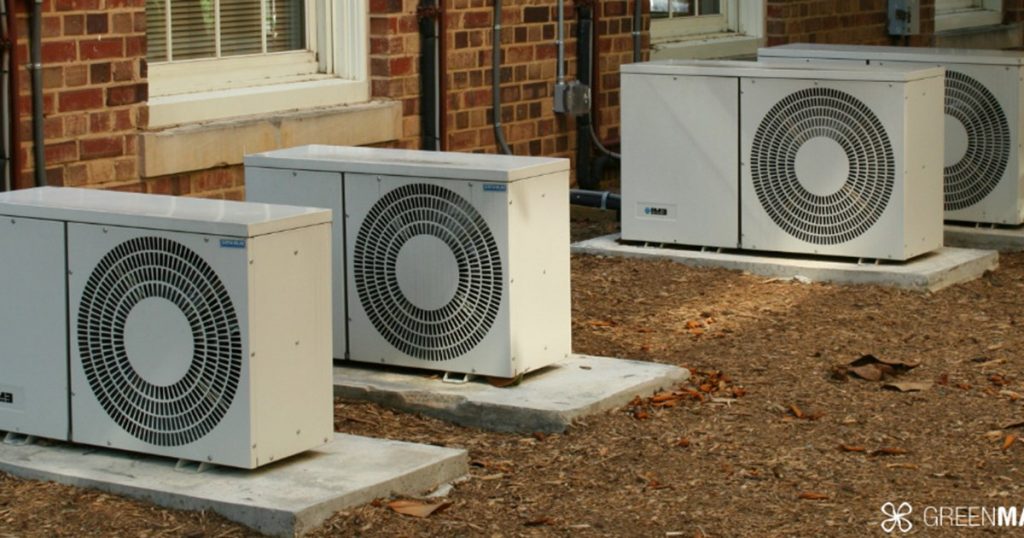
Interested in installing an Air source or Ground source Heat Pump? There are a few things to consider, and this guide will help you figure out what you need to know. We’ll talk about whether a Heat Pump (whether Air or Ground Source) is suitable, who to get advice from and what kind of installer you should choose.
What’s a Heat Pump?
In simple terms, a heat pump works by moving heat from the air or ground and drawing it into the property. This is incredibly climate friendly; it burns no fuel or energy (and just transfers it) and can do so in even incredibly low temperatures. There are many different kinds, but the most common on the market are ground and air source.
Why Heat Pumps?
Heat Pumps possess some fantastic benefits which can’t be understated. Roughly put, Heat Pumps will,
- It can significantly lower your energy bills. Heat Pumps are cheap to run and put out a significant amount of power.
- Can be used to heat your home, as well as provide you with hot water.
- Require minimal maintenance, meaning less spent on repairs and insurance. Replacement parts in the case of a break or issue are cheap.
- Cut down on carbon emissions and carbon footprint, as since they use existing energy, they aren’t burning fossil fuels.
Research – the Key Step
It’s incredibly important to do research when it comes to a project and investment like a heat pump. You can find plenty of resources online regarding what you’ll need when it comes to heat pumps (both air and ground source).
There are some key things you’ll want to think about during your research,
- What kind of heat pump do I want? Is it suitable for my property?
- What kind of money am I looking to invest?
- What is the right size of heat pump?
It’s vital to find out if your property is suitable or not as if you pick a heat pump which isn’t right. If you do this, you could end up with a system which isn’t suitable for your property and so doesn’t return the financial investment you’ve made.
One of the best places to find answers to these kinds of questions is an installer – which makes choosing a professional installer vital.
Choosing an Installer
Once you have finished doing your research and figured out what kind of pump is suitable for your property and the best choice for you, you’ll want to find someone to provide an installation. It’s highly recommended to avoid any kind of ‘DIY’ work. While attractive on the basis it might save money, the potential for mistakes or a poor installation can prove costly in the long run. As such, you should always get a professional and make sure you avoid any issues.
When you’re picking an installer, there’s some important things to look for,
- That they (and their product) are certified by the Microgeneration Certification Scheme (MCS)
This part is in particular very important. The MCS effectively sets all the important standards for heat pumps and designers, and they’re important for ensuring the quality of the product as well as the installation. Furthermore, if you’re interested in potential funding or grants, MCS accreditation will be required.
- That the installer has membership in trade associations
Membership in trade associations, or in a Consumer Code, is also really quite important. MCS accredited companies should always be part of a Consumer Code. The two largest MCS linked Consumer Codes are the Home Insulation and Energy Systems Quality Assurance, alongside the Renewable Energy Consumer Code.
The purpose of Consumer Codes is to set standards for selling systems to the public and ensuring the public receive a good deal.
- Customer reviews and past experiences
- They’re experienced in providing installations, and have a demonstrable body of work
- When the installer offers you a quote for the cost, ensure the quote also covers the cost of commissioning the heat pump (which authorises it as being fit for service)
- The quote also includes the ‘aftersales’ costs of annual servicing; while they do not require regular maintenance, servicing is vital to ensure the heat pump continues operating properly and efficiently, and will ensure a long-life span
These are amongst the most vital things you must do when looking into an installer. Some other things to remember.
Post Installation
An installer should always provide you with a commissioning certificate. This is important to keep. You should also,
- Keep contact details for your installer
- The heat pumps warranty
These are vital in case you experience any issues and need assistance.
Conclusion
When investigating Air Source Heat Pumps Scotland, you should always remember,
- To investigate the suitability of your property
- The kind of system you’re interested in
- And the background of any potential installer
